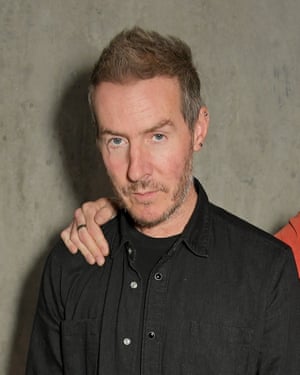Bristol band team up with academics from Manchester University to share tour data
Helen Pidd North of England editor Email
Thu 28 Nov 2019 07.19 ESTLast modified on Thu 28 Nov 2019 14.00 EST
Shares125

Last week Coldplay announced they were to stop touring until they were sure it would be carbon neutral; now Massive Attack are partnering with academics to map the carbon footprint of the music industry.
The researchers from Manchester University’s Tyndall Centre for Climate Change Research will analyse data from Massive Attack’s touring and recording schedule to look at three key areas where CO2 emissions are generated: band travel and production, audience transport and venue.
The aim is to provide information and guidance to the wider music industry so that it can reduce its negative environmental impact in light of the increasing climate emergency.
“In an emergency context, business as usual – regardless of its nature, high profile or popularity – is unacceptable,” wrote Robert Del Naja, AKA 3D, Massive Attack’s vocalist, in an article for the Guardian, explaining the collaboration.
He said the band had tried carbon offsetting for almost 20 years, paying to have trees planted, prohibiting the use of single-use plastics and travelling by train wherever feasible. But they had come to the conclusion that “offsetting creates an illusion that high-carbon activities enjoyed by wealthier individuals can continue, by transferring the burden of action and sacrifice to others – generally those in the poorer nations in the southern hemisphere”.

Del Naja said the band did not want to stop playing big shows or festivals, but that huge change was essential for the planet’s future.
“Given the current polarised social atmosphere, uplifting and unifying cultural events are arguably more important now than ever, and no one would want to see them postponed or even cancelled. The challenge therefore is to avoid more pledges, promises and greenwashing headlines and instead embrace seismic change,” he wrote.
Dr Chris Jones, a research fellow at Tyndall Manchester, said: “We will be working with Massive Attack to look at sources of carbon emissions from a band’s touring schedule. Every industry has varying degrees of carbon impact to address and we need partnerships like this one to look at reducing carbon emissions across the board.
“It’s more effective to have a sustained process of emissions reductions across the sector than for individual artists to quit live performances. It will likely mean a major shift in how things are done now, involving not just the band but the rest of the business and the audience.”
The collaboration will produce a framework based on data gathered from Massive Attack’s forthcoming tour.
This year, Glastonbury festival banned single-use plastic, and an increasing number of artists are taking steps to reduce their environmental footprint.
Trees in the Amazon are the world’s sweat glands – and 10 other essential climate facts
Ariel Conn Read more
In an interview with BBC News last week, Coldplay’s frontman, Chris Martin, said the group were waiting to tour their new album, Everyday Life, so they could ensure such a tour was carbon neutral. “Our next tour will be the best possible version of a tour like that environmentally,” said Martin. “We would be disappointed if it’s not carbon neutral. We’ve done a lot of big tours at this point. How do we turn it around so it’s not so much taking as giving?”
The solo artist Billie Eilish’s next tour, in March, will feature the “Billie Eilish eco-village”, where fans can learn about their role in the climate crisis. Those who pledge to fight the climate emergency with the organisation Global Citizen can earn free tickets to the sold-out shows.
The 1975 are working towards making their tours carbon-efficient and have pledged to plant a tree for every ticket sold for their UK arena tour in February. The British band have also stopped producing new T-shirts, instead screen-printing a new design over old merchandise stock.
As the climate crisis escalates…
… the Guardian will not stay quiet. This is our pledge: we will continue to give global heating, wildlife extinction and pollution the urgent attention and prominence they demand. The Guardian recognises the climate emergency as the defining issue of our times.
We made a choice: to keep Guardian journalism open to all. We do not have a paywall because we believe everyone deserves access to factual information, regardless of where they live or what they can afford.
Our independence means we are free to investigate and challenge inaction by those in power. We will inform our readers about threats to the environment based on scientific facts, not driven by commercial or political interests. And we have made several important changes to our style guide to ensure the language we use accurately reflects the environmental catastrophe.
The Guardian believes that the problems we face on the climate crisis are systemic and that fundamental societal change is needed. We will keep reporting on the efforts of individuals and communities around the world who are fearlessly taking a stand for future generations and the preservation of human life on earth. We want their stories to inspire hope. We will also report back on our own progress as an organisation, as we take important steps to address our impact on the environment.
We hope you will consider supporting the Guardian’s open, independent reporting today. Every contribution from our readers, however big or small, is so valuable. Support The Guardian from as little as CA$1 – and it only takes a minute. Thank you.Support The Guardian

Topics